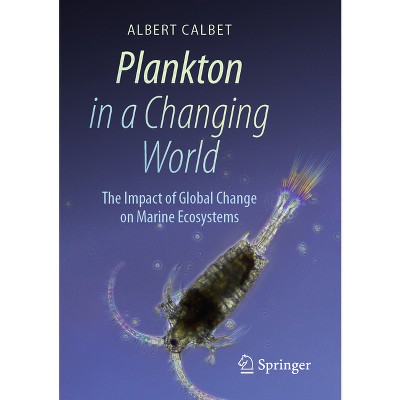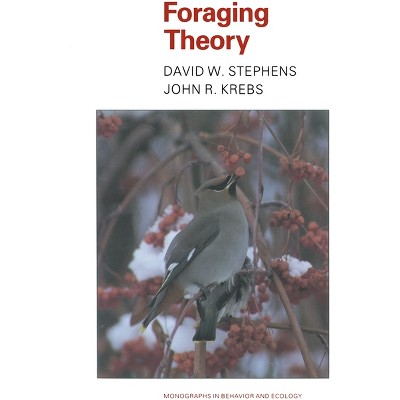Sponsored

A Mechanistic Approach to Plankton Ecology - by Thomas Kiørboe (Hardcover)
In Stock
Sponsored
About this item
Highlights
- The three main missions of any organism--growing, reproducing, and surviving--depend on encounters with food and mates, and on avoiding encounters with predators.
- About the Author: Thomas Kiørboe is professor of ocean ecology at the National Institute of Aquatic Resources, Technical University of Denmark.
- 224 Pages
- Science, General
Description
Book Synopsis
The three main missions of any organism--growing, reproducing, and surviving--depend on encounters with food and mates, and on avoiding encounters with predators. Through natural selection, the behavior and ecology of plankton organisms have evolved to optimize these tasks. This book offers a mechanistic approach to the study of ocean ecology by exploring biological interactions in plankton at the individual level. The book focuses on encounter mechanisms, since the pace of life in the ocean intimately relates to the rate at which encounters happen.
Thomas Kiørboe examines the life and interactions of plankton organisms with the larger aim of understanding marine pelagic food webs. He looks at plankton ecology and behavior in the context of the organisms' immediate physical and chemical habitats. He shows that the nutrient uptake, feeding rates, motility patterns, signal transmissions, and perception of plankton are all constrained by nonintuitive interactions between organism biology and small-scale physical and chemical characteristics of the three-dimensional fluid environment. Most of the book's chapters consist of a theoretical introduction followed by examples of how the theory might be applied to real-world problems. In the final chapters, mechanistic insights of individual-level processes help to describe broader population dynamics and pelagic food web structure and function.From the Back Cover
"A considerable achievement, this book is a vital addition to the field and an important tool in assisting interdisciplinary investigations in ocean biology."--Susanne Menden-Deuer, Princeton University
"This book allows scientists who work in any corner of the planktonic encounter arena to expand their views and teaching capabilities to cover the entire area. It will be the text of choice for graduate seminars in all the major and minor oceanographic and limnological institutions."--Peter A. Jumars, University of Maine
Review Quotes
"I found the ordering and summary of materials, especially those applying encounter theories directly, to be helpful in ordering my own thinking. The ideas will be broadly familiar to experts in the field, but Kiørboe's clean, direct presentations pull them together in a rewarding way; your study time will be well spent. For aspiring experts, this mechanistic approach is important to master, and working through this book will give you a great running start."---Charles B. Miller, Journal of Plankton Research
"What could be deadly dull material is enlivened by evocative examples from Kiørboe's extensive observations of plankton. . . . One cannot read this book without gaining a much fuller appreciation of how fluid motion influences life in the sea."-- "New Biological Books"
About the Author
Thomas Kiørboe is professor of ocean ecology at the National Institute of Aquatic Resources, Technical University of Denmark.Shipping details
Return details
Frequently bought together

Trending Non-Fiction
















